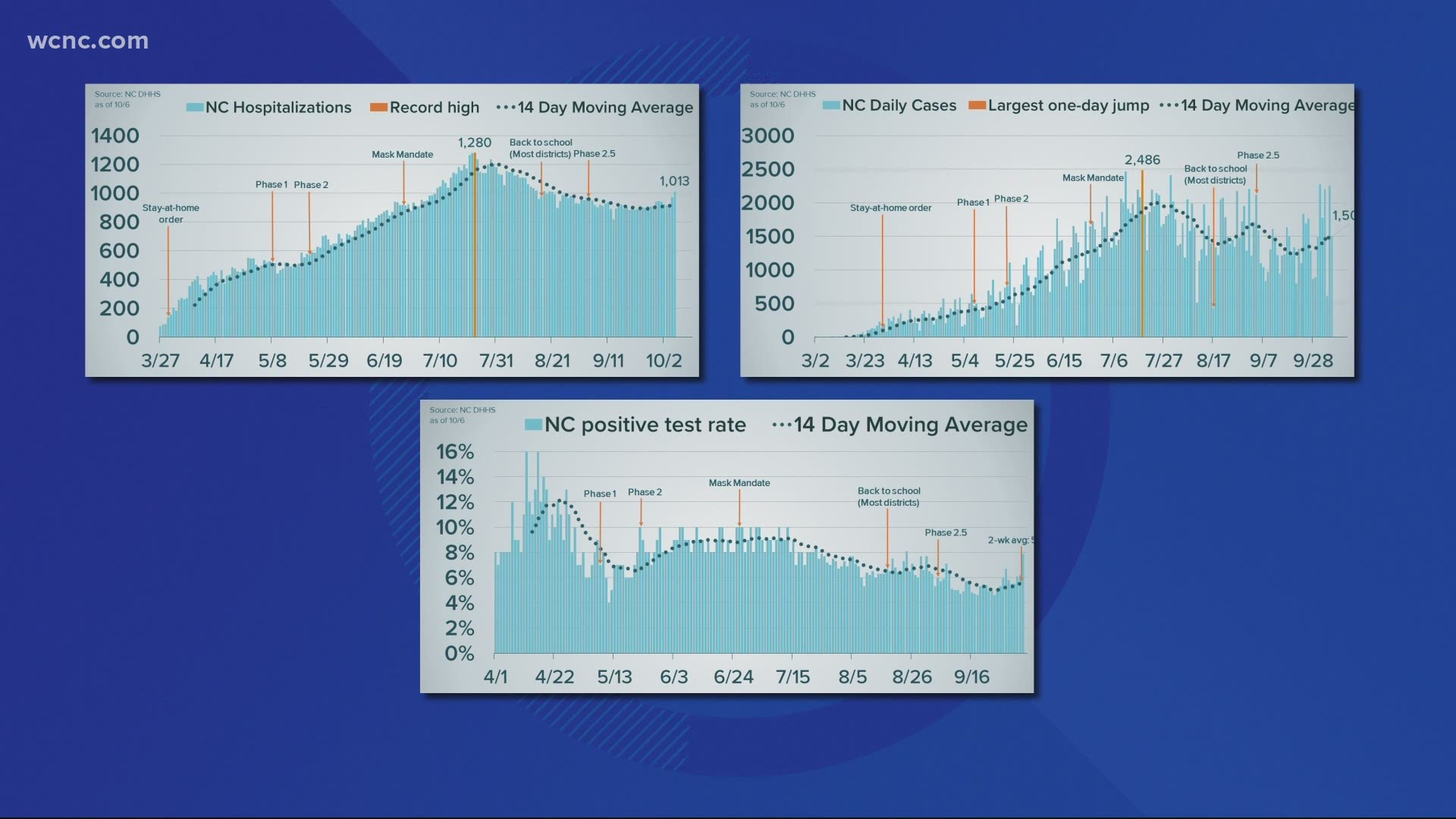CHARLOTTE, N.C. — Metrics stability in North Carolina could be short-lived if current COVID-19 trends continue. Gov. Roy Cooper and state health leaders reported Tuesday that the state's key measurements have started moving upward again.
"We're concerned about the direction the trends have begun to take just this past week," Cooper said, adding that North Carolina's positive test rate and hospitalizations are increasing.
North Carolina Dept. of Health and Human Services data show 5.7 percent of coronavirus tests are coming back positive. For the first time since late August, the state reported more than 1,000 coronavirus patients in the hospital.
Daily new cases have grown as well, with multiple days of 2,000-plus increases this month.
Last week, NCDHHS Secretary, Dr. Mandy Cohen reported the state's "early warning" metric, the emergency room reports of COVID-like symptoms, had begun to rise again, too.
The increases come on the heels of the governor's announcement that the state would be moving into Phase 3 of reopening. At 5 p.m. on Friday, October 2, bars, theaters and large outdoor venues reopened under reduced capacity.
The start of Phase 3 meant the Carolina Panthers were able to play their first home game of the season to a smaller crowd of fans at Bank of America Stadium on Sunday.
Dr. Cohen said, based on what is known about the virus incubation time, it is too soon to see Phase 3's impact on the numbers. She said the current trend is more likely tied to the last few weeks and increased movement that has happened then.
"What we're seeing generally is a rise in cases across the state. There's no one hotspot," said Cohen.
The increases are coming against the larger backdrop of rising cases across most of the country--a trend threatening to heighten as the U.S. enters flu season and colder weather drives more people together indoors.
Cooper is urging everyone to double-down on COVID-safe practices, like masking, social distancing, and hand-washing.
The Phase 3 executive order is set to expire Oct. 23, leaving the governor and health officials with two and half more weeks to see what the state's numbers do and decide what North Carolina's next steps will be.
"We all need to come together to fix this, as a state and as country, to defeat this virus. This thing is not over, and we have the potential this Fall and Winter for things to get worse," Cooper said.

